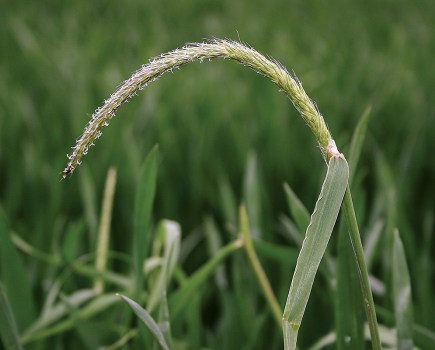Senior MEP Anthea McIntyre has welcomed a last minute reprieve for the much-used weedkiller glyphosate after it was belatedly granted a fresh licence for continued use across the European Union.
The decision to grant the herbicide a licence for a further five years was reached today (Mon) by the EU Commission’s Standing Committee on Plants, Animals, Food and Feed, comprising representatives of the 28 member states, after a series of meetings this year failed reach consensus.
The approval comes just a few days before the current licence expires on December 15, which left many farmers fearing a sudden ban with drastic effects.
Miss McIntyre, Conservative MEP for the West Midlands, said: “The scaremongering and indecision over this product had left farmers and growers fearing they were staring over a cliff edge, so this will be greeted with enormous relief.”
The popular agent, commonly sold to famers and gardeners under the brand name Roundup, came under suspicion after a World Health Organisation report labelled it a suspected carcinogen; but hundreds of separate, peer-reviewed studies have shown this not to be the case.
Earlier this month, a further independent and long-term study from the National Cancer Institute found no association between glyphosate and non-Hodgkin lymphoma.
Miss McIntyre, member of the European Parliament’s Agriculture Committee, said: “It should never have taken this long to renew the licence and it should have been renewed for a full 15 years but the last minute reprieve and the licence for five years is welcome.
“Many farmers are making a big effort to build up the levels of organic matter in soils by using ground cover crops and “no-till” farming methods, backed up by application of glyphosate. This gives us carbon sequestration, protection from soil erosion and avoidance of water evaporation.
“A de facto ban on glyphosate would have been a shocking and unscientific backward step.
“Farmers would have had to fall back on mechanical weed control. That would mean 25 per cent increase in greenhouse gas emissions and a significant impact on farm bird life – including skylarks, partridge, lapwing.
“For a zero Improvement in public health and safety, we would have been worsening food security, soil quality, biodiversity and climate change.”




